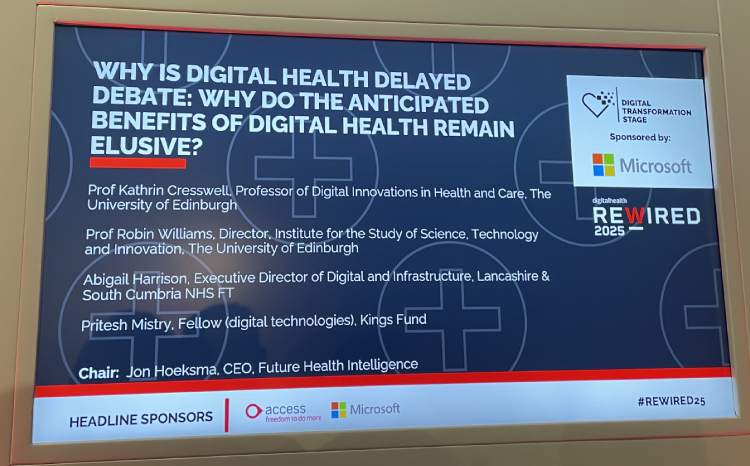Research challenges idea that tech always frees up NHS staff time
- 24 February 2025

- New research from The Health Foundation challenges the assumption that the procurement of technology in the NHS will automatically free up staff time
- The report found that the impact of different types of technology on staff time are mixed
- It highlights that technology’s potential to generate time savings depends on how it is implemented and used
New research from The Health Foundation challenges the assumption that the procurement of technology in the NHS will automatically free up staff time.
With the health system under unprecedented pressure, there is a strong government focus on the potential for technology to support NHS staff through the shift from ‘analogue to digital’.
However, the report, ‘Tech to save time: how the NHS can realise the benefits’, published on 24 February 2025, found that the impact of different types of technology on staff time are mixed.
Drawing on The Health Foundation’s research and a rapid evidence review by the Evidence Centre, the analysis explores situations where health technologies have had no impact or a negative impact on staff time and investigates why.
The research highlights that technology’s potential to generate time savings depends on how it is implemented and used.
Tim Horton, assistant director of insights and analysis at The Health Foundation, said: “Saving staff time through the use of tech is seen as a major part of the answer to many of the NHS’s problems.
“Our analysis shows that simply procuring new technology and expecting it to save staff time doesn’t work.
“Policymakers and system leaders must fund the change, not just the tech.
“And those leading implementation locally must have the flexibility to engage staff and patients in the deployment of technology, to maximise the chances of success.”
The analysis suggests that successful technology implementation requires funding and support.
“In order to increase the likelihood that health care technology will be effective, health policy needs to evolve from a focus on procurement to a focus on implementation and optimisation.
“It is critical that policymakers and system leaders fund the change, not just the tech,” the report says.
Among different types of technology, there was variation in the proportion of studies that found time savings – potentially suggesting that some technologies may have more complex implementation challenges than others.
The main reasons technology had a negative impact on staff time related to workflow and task efficiency, usability and skill and the wider context in which the technology was being implemented.
“Looking ahead, the NHS 10 year health plan provides an opportunity to improve on many previous technology programmes by challenging the assumption that the procurement of new cutting-edge technologies will automatically unlock staff time and improve patient care.
“Instead, an approach to supporting the rollout of health technologies should be put in place that better aligns with what we know about the real-world challenges involved in realising their benefits,” the report says.
This echoes the findings of Lord Darzi’s review of the NHS in England, published in September 2025, which says: “It always seems to add to the workload of clinicians rather than releasing more time to care by simplifying the inevitable administrative tasks that arise”.
In an exclusive interview with Digital Health News in November 2024, Malte Gerhold, director of innovation and improvement at The Health Foundation, said that to get the benefits of digital health the government must support staff to implement the technology.





1 Comments
I was a therapy radiographer working from 1968 to early 1990’s. There was very little money around for new equipment. Linear accelerators were the tech of the day. We all wanted to ditch radioactive sources in their favour. Manufacturers ran open days and courses for those such as myself although the prospect of acquiring such machines were often a long way off.
Exposure in this way enthused attendees to aspire to the possibility of change. This seems a different culture to what I now see, as a lay person, where NHS employees seem to have tech stuff thrust upon them with a negative enthusiasm for its implementation.
Certainly more emphasis must be on support for staff to implement change in order to optimise ever more precious funds but perhaps the implementation strategy should begin earlier to encourage staff enthusiasm and general understanding of its possible benefits.
Comments are closed.